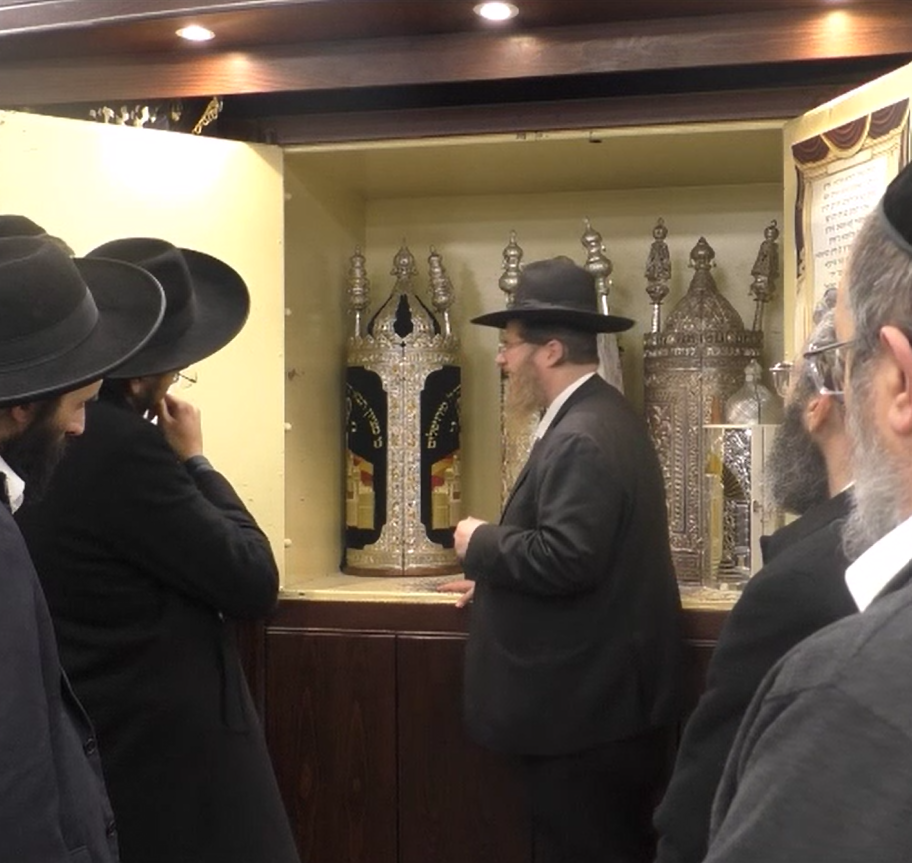
The laws of Maaser Kesafim (the Monetary Tithe)
Summary of the Tithing laws on Financial Income (Ma’asrot, Tzedakah, etc.) How much should a person donate of their profits


I would love to receive some segulot for an easy birth?
There are many segulot for easy birth, as we will note some. And although Eve was cursed “with sadness that you will give birth to sons,” there is nothing to prevent doing segulot in order to merit an easy birth, since Hashem with all His grace gave us the opportunity through commandments and positive actions to relieve the birth sorrow, because he does not want the punishment, but correcting deeds. And of course, first and foremost, praying (including the reading of Psalms), that you have no greater segulah, and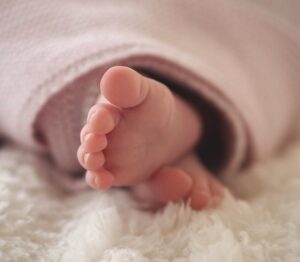 everything else is an addition. And I remember Maran Rabbeinu Ovadia Yosef z”l how he would pray wholeheartedly and happily for women giving easy birth, his right to protect us, Amen.
everything else is an addition. And I remember Maran Rabbeinu Ovadia Yosef z”l how he would pray wholeheartedly and happily for women giving easy birth, his right to protect us, Amen.
It should be known that the mother does not have to bother to fulfill all the segulot written here, there is no “mitzvah” to so, but she should choose some segulot for herself and give birth to a good life and peace.
It should be noted, that I will mention only those segulot that belong especially to the matter of easy birth, but there are many other segulot that are general, that is, beneficial for all types of salvation (including easy birth), such as the miraculous segulah of Rabbi Matthia ben Harash, and the like.
It is a well-known segulah for easy birth, to bite the etrog’s “pittem” (in a way that it is disqualified), and it is precisely the etrog in which her husband performed the mitzvah of the “four menim” on the chag of Sukkot. However, it is necessary to discuss the appropriate time for this segulah, as I will explain.

The source of the segulah has already been noted to the Gaon chavat Yair z”l [1], who wrote that the custom of a pregnant women to bite the nipple (pittem) from the etrog (although the reason is not mentioned). Likewise, rabbi Chaim Falaji z”l, in his book Mo’ad lkol ‘chai [2] also cites the book of Nazir Shimshon. And according to the preamble there, the main segulah is for the health of the mother (at birth) and the health of the newborn, but Rabbi Falaji wrote at the end of his remarks: “And you shall merit that you shall give birth in spirit and not in sorrow, and the child will go out to a good life and peace”.
Details in this segulah:
רבונו של עולם! גלוי וידוע לפניך דבשביל שאכלה חוה מעץ הדעת גרמה בחטאה להביא מיתה לעולם וחבלי יולדה, ואם אני הייתי שם באותו זמן לא הייתי אוכלת ממנו ולא הייתי נהנית ממנו מכל וכל, כשם שלא רציתי לפסול אתרוג זה בכל ימי החג שעברו, ועתה שפסלתי אותו בשביל שנגמרה מצותו ואני לא הייתי עוברת מצותיך, ותקבל ברצון את תפילתי ואת תחינתי שלא אמות מסיבת העיבור ומסיבת הלידה, והושיעני שתהא הלידה בנקל ובנחת ולא בצעד ולא בקושי, ולא תהיה לי ולולד שום נזק כי אתה האל המושיע.
And even after the Shemita year in Eretz Yisrael, when most of the Yemenite etrogs are from the Otzar Beth Din (and they are holy), the head of the rabbinate, Rabbi Yitzhak Yosef Shlita [4], already said that it is permissible to do the aforementioned segulah of biting the nipple. (However, as stated, he will do so after Sukkot and not on chag).
In a book yafe lalev (to rabbi Yitzhak Falaji z”l) [5] he brought the custom after Sukkot to make a concoction with sugar (etrog jam) from the etrog, and to put it on the table on the night of Tu B’Shvat, which is the New Year of the Trees, and the people of the house will bless them, and wrote that it is a segulah that a women will give birth with no sorrow. And so in the book kaf hachaim [6]. And so Meran Rabbeinu Ovadia Yosef z”l wrote this is a segulah for easy birth, but he added an important detail: that the jam should be the etrog that was blessed on Sukkot for the fulfillment of the mitzvah. Because the main segulah is by the mitzvah done in the etrog, and not that the etrog itself has specificity.
[And there is some room to understand from yafe lalev[8] that the segulah is to eat during the birth and not only on Tu B’Shvat, but it seems that this is not necessarily the case.]
melava malkah – is a wonderful segulah for easy birth, to regularly observe every night after Shabbat the mitzvah of ” melava malkah”, and to say with the mouth that I am eating “for the sake of the mitzvah of melava malkah” – see the kaf hchaim [9] in the name of the Baal Noam Elimelech, and so Maran Rabbeinu Ovadia Yosef z”l in his book Yabi’a omer [10].
And although Rabbi Elimelech sais that she should eat “something,” the Devari Yatziv of tzanz [11] already wrote that the intention is that you eat at least a kazit (bread or mezonot – that is what is meant there).
And a woman who was in labor on Friday night in such a way that she could not then eat, rabbi zilberstein wrote [12] she should try (if possible) to prepare a meal for her husband, since she is not able to do so, it is considered fulfilling herself, and in any case will benefit her for an easy birth.
Opening the aron kodesh as a segulah for Easy Childbirth: According to the kaballa, it is true that whoever is pregnant in the ninth month should open the ark (Maran Hida z”l [13], and Kaf Hachaim [14]). However, it should be emphasized that it is not said in the words of the caida that this is a segulah for an easy birth, but the person who opens the ark will be someone whose wife is in her ninth months. However, in the Book yafe lalev Falaji z”l [15] is written that the opening of the ark is for Simana Tava that God will open a woman’s womb (and added there that there is no need to leave the ark open, but to close it as is customary, because this makes Simana Tava so that after birth, G-d will close her womb as it should be). And in the book vedarashta vechkartah [16] wrote that according to experience it is known that it is a “tried and tested” segulah for easy birth.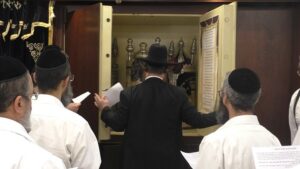
And is it enough to open the ark once, or is it even desirable several times to buy an opening and open? In the book Brit Ephraim [17] he wrote that Rabbi Yaakov Edelstein, z”l, was asked about this, and replied that one time is enough for an easy birth, but it turns out that the most is good.
In the book ‘Raphael Hamalach’ added that when he opens the ark for an easy birth, he will pray that his wife will have an easy birth, and he brought there an Aramaic prayer text (as an addition to the “Brich Shemiah”), and we will present here the wording in language suitable for every soul:
Please fulfill my wife’s wishes for the better, and open her womb at a happy hour, without difficulty, just as I opened the Holy Ark at the appropriate time and without difficulty, and give birth to a son who exists, for good life and peace.
And the secret of this segulah must be clarified, because the physical actions we perform here stimulate this examination in the spiritual dimension as well (as we explained in the sources for another answer), and in any case we will make a time of desire to ask for something similar (opening the uterus like opening the ark, and removing the fetus like publishing a Torah scroll).
Before giving birth, the mother will take upon herself “without a vow”, that when she gives birth in peace she will say נשמת כל חי“”, which is a segulah for an easy birth (rabbi Elyashiv z”l [18]).
The segulah is based on what is said in the Book chanukat hatorah [19] which brings segulah to be watched safely: “before leaving the door of his house he will put his hand on the mezuzah and say, I accept a vow on me, when I see a certain place, I will say נשמת כל חי. And when he sees the place he will immediately say נשמת כל חי.” And the matter of birth is actually a process that requires guarding, and rabbi Elyashiv z”l renewed the benefit of an easy birth, but in his opinion it should be done “without a vow.” (And according to the aforementioned source, this means that it is good for the mother to say when she leaves the house, with her hands on the mezuzah, but it is possible to divide that the salvation required is guarding the way so the “exit” is significant to say there, as for the mother for whom the beginning of labor pains is the “exit”, so then she will say נשמת כל חי.)
A nother segulah for an easy birth, is at birth to say the verse [20] to her: ” “וְיָרְדוּ כָל עֲבָדֶיךָ אֵלֶּה אֵלַי וְהִשְׁתַּחֲווּ לִי לֵאמֹר צֵא אַתָּה וְכָל הָעָם אֲשֶׁר בְּרַגְלֶיךָ וְאַחֲרֵי כֵן אֵצֵא.” “. see The book refuah v’chaim Falaji,[21] and in the Book of ‘mihagim’ [22]. And the reason of reading this passuk is according to the Midrash to take him a Gentile from among a Gentile teaches that Israel was swallowed up as it were, in the bowels of Egypt, and G-d took them out like an embryo dropped out of a woman’s womb, and Moses said this verse to Pharaoh in order to bring the people of Israel out of Egypt as a woman who makes it difficult for a child. and wrote there that this segulah is “tested and experienced”.
passuk is according to the Midrash to take him a Gentile from among a Gentile teaches that Israel was swallowed up as it were, in the bowels of Egypt, and G-d took them out like an embryo dropped out of a woman’s womb, and Moses said this verse to Pharaoh in order to bring the people of Israel out of Egypt as a woman who makes it difficult for a child. and wrote there that this segulah is “tested and experienced”.
It is necessary to examine whether it is enough to say the above verse once, or whether it is useful to say it several times. Well, in the Book of Netivot hamarav [23] he wrote that it was customary in Morocco for the relatives of the mother who are around her at the time of birth, to recite this verse to her many times.
And in cases where there is a fear of danger in childbirth, that the process needs to be speeded up, I saw in the book Kadoshat Yitzchak (photocopies of the old Kabbalists Rav Yitzchak Kadoori z”l) [24] that he wrote to take a glass of water in his hand and then whisper the above verse (plus two verses) seven times on the water, and let the mother drink the water, and it is written there that then “immediately she will give birth”, and these are the verses: וַיֵּט שָׁמַיִם וַיֵּרַד וַעֲרָפֶל תַּחַת רַגְלָיו: נְנַתְּקָה אֶת מוֹסְרוֹתֵימוֹ וְנַשְׁלִיכָה מִמֶּנּוּ עֲבֹתֵימוֹ: וְיָרְדוּ כָל עֲבָדֶיךָ אֵלֶּה אֵלַי וְהִשְׁתַּחֲווּ לִי לֵאמֹר צֵא אַתָּה וְכָל הָעָם אֲשֶׁר בְּרַגְלֶיךָ וְאַחֲרֵי כֵן אֵצֵא וַיֵּצֵא:
then “immediately she will give birth”, and these are the verses: וַיֵּט שָׁמַיִם וַיֵּרַד וַעֲרָפֶל תַּחַת רַגְלָיו: נְנַתְּקָה אֶת מוֹסְרוֹתֵימוֹ וְנַשְׁלִיכָה מִמֶּנּוּ עֲבֹתֵימוֹ: וְיָרְדוּ כָל עֲבָדֶיךָ אֵלֶּה אֵלַי וְהִשְׁתַּחֲווּ לִי לֵאמֹר צֵא אַתָּה וְכָל הָעָם אֲשֶׁר בְּרַגְלֶיךָ וְאַחֲרֵי כֵן אֵצֵא וַיֵּצֵא:
It should be noted that a verse that is not well spoken, must not be said by heart, but will be read from the book, as we have discussed in my book siftay shoshanim.
A virtuous for any trouble, and especially for a woman giving birth who will have an easy birth, to say (at birth) twelve times the psalm “יענך השם ביום צרה” (chapter 20 of the Psalms). The chidah also cited in his book Sensen to Yair [25] and also brought as an addition
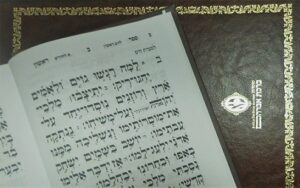
some important intentions in the recitation of the psalm, and we will not mention the intentions here. Because they are not affordable.
And for the benefit of this, we will present here the psalm, as well as the prayer composed by Maran Hachida to say after reciting the psalm:
לַמְנַצֵּחַ מִזְמוֹר לְדָוִד: יַעַנְךָ יהוה בְּיוֹם צָרָה יְשַׂגֶּבְךָ שֵׁם אֱלֹהֵי יַעֲקֹב: יִשְׁלַח עֶזְרְךָ מִקֹּדֶשׁ וּמִצִּיּוֹן יִסְעָדֶךָּ: יִזְכֹּר כָּל מִנְחֹתֶךָ וְעוֹלָתְךָ יְדַשְּׁנֶה סֶלָה: יִתֶּן לְךָ כִלְבָבֶךָ וְכָל עֲצָתְךָ יְמַלֵּא: נְרַנְּנָה בִּישׁוּעָתֶךָ וּבְשֵׁם אֱלֹהֵינוּ נִדְגֹּל יְמַלֵּא יהוה כָּל מִשְׁאֲלוֹתֶיךָ: עַתָּה יָדַעְתִּי כִּי הוֹשִׁיעַ יהוה מְשִׁיחוֹ יַעֲנֵהוּ מִשְּׁמֵי קָדְשׁוֹ בִּגְבֻרוֹת יֵשַׁע יְמִינוֹ: אֵלֶּה בָרֶכֶב וְאֵלֶּה בַסּוּסִים וַאֲנַחְנוּ בְּשֵׁם יהוה אֱלֹהֵינוּ נַזְכִּיר: הֵמָּה כָּרְעוּ וְנָפָלוּ וַאֲנַחְנוּ קַּמְנוּ וַנִּתְעוֹדָד: יהוה הוֹשִׁיעָה הַמֶּלֶךְ יַעֲנֵנוּ בְיוֹם קָרְאֵנוּ:
יהי רצון מפניך יי אלקינו ואלקי אבותינו, אלקי אברהם אלקי יצחק ואלקי יעקב, האל הגדול הגבור והנורא, אהיה אשר אהיה, שדי צבאות, שתעשה למען רחמיך הרבים ולמען קדושת המזמור הזה ושמותיך הכתובים בו והמצורפים בו, ושמות הקודש (אשר כיונתי) בצירופים שהוא שם בן י”ב ותרחם על פלונית בת פלונית היושבת על המשבר צועקת בחבליה, אל מלא רחמים תוציאה מאפילה לאורה, ובזכות אמותינו הקדושות שרה רבקה רחל ולאה תרחם עליה, ותזכרנה לטובה, ותפקדנה לברכה, כי עיניה לך תלויות כעיני שפחה אל יד גברתה, ותבטל מעליה כל גזירות קשות ורעות, בשם (יכוין בלבו ולא יוציא בפה: קר”ע שט”ן), וחצילה מכל צער, ויצא הולד לחיים טובים ולשלום ובשעה טובה ומבורכת לנו ולולד, ואח”כ תצא השליא בנקל. וכשם ששמעת מי שהתפלל לפניך המזמור הזה, כן תשמע תפלתינו. עשה למען שמך עשה למען ימינך עשה למען תורתך עשה למען קדושתך. מאן דעני לאמך הוא יענה אתך. יהיו לרצון אמרי פי והגיון לבי לפניך יי צורי וגואלי.
This segulah can do between the mother herself, among others who wish to pray for her.
And the secret of this segulah is introduced in the Book of Midrash Talpiot (to the Chassid Eliyahu Hacohen of Izmir, z”l) in a maternity branch called Emek Hamelech [26]: “Know that the woman who gives birth, among all her birth pains, shouts at least 70 voices, as stated in the Zohar of Parashat Vaitza, to which the Psalm of יענך השם ביום צרה which have akso 70 words in the psalm, and then she will give birth.” And by the way, this means that one should not read aloud the psalm as usual, but to whisper in her ears.
And this segulah is brought also in books (such as Sefer nhagu ham to rabbi David Ovadia, z”l [27]) also wrote in the name of Sefer Likutei Moharan [28] that the aforementioned chapter “Ya’anach Hashem” belongs to the matter of birth, which has 70 words against 70 voices that the mother shouts during childbirth, as above. And he has already written the same in the Book of Tolat Jacob’s [29].
And in Simchat Banim 82, page 243, he wrote on behalf of our great Kabbalist friend, Rabbi David Batzri Shlita, that it is good that during the ninth month, both husband and wife will read the aforementioned psalm “Ya’anach” 70 times.
In addition to the aforementioned psalm “Ya’anach”, it is also recommend for certain chapters of Psalms as a segulah for easy birth:
A segulah for an easy birth is brought in the Book kedushat yitzchak (photocopies of manuscripts of the elder of the Kabbalist, Rabbi Yitzchak Kadoorie z”l).[36] And although we have not usually brought segulahs with intentions here, but the intentions in this segulah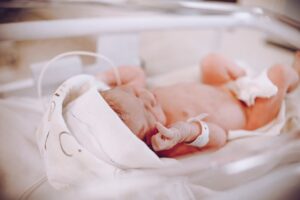 are relatively simple, and therefore I said to bring them in the Hebrew language. And it is as follows:
are relatively simple, and therefore I said to bring them in the Hebrew language. And it is as follows:
It should be noted that if it seems strange to people (such as doctors nurses, etc.) about raising hands, it seems better to avoid this segulah, so as not to cause contempt and incarnation in these sacred matters.
Mitzvat “hachnasat orchim” is a segulah for easy birth. And an allusion to the word “בעצב תלדי בנים” – עצ”ב ראשי תיבות “ע’יניה צ’רות ב’אורחים” meaning that if the landlady has narrow eyes on guests and does not receive guests happily, then she is cursed by Eve “sadly you will give birth to sons”, but if she receives guests happily and properly, then she receives an easy birth. Rabbi y. zilberstien. [37]
And in the name of Rabbi Pinchas fron Koritz z”l,[38] is written that the right Mitzvat “hachnasat orchim” of her family members can benefit a mother who gives birth to a good life and peace.
A segulah for an easy birth from the “Baal Shem Tov” z”l [39] that the husband would go to immerse in the mikveh when his wife began the process of labor (contractions).
And in the Book of “lapid ash”[40] wrote a story that a Chassid Sanz relates that his wife was sitting on the crisis and the doctors at the hospital said that she was in great danger and needed surgery, and the Chassid called the Rebbe Divrei Yatziv z”l to ask him to appeal for him, and the Rav z”l instructed him to go immediately and immerse in the mikveh and thereby sweeten the judgments. And when he came up from the mikveh and returned to the hospital, we were immediately informed that she had already given birth to good luck and everything went well.
And in this context, some say (from rumour) that it is good for the husband after he was tovel seven times and then say seven times a “מזמור לתודה (i.e., chapter 100 of the Psalms).
Jewelry – a necklace with diamonds is famous for easy birth,
The mother will remove all jewelry during childbirth. However, according to the truth, this is true only for jewelry that contains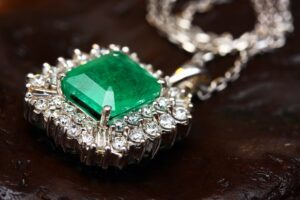 diamond, as he wrote in the Midrash Talpiot Diamond Branch, that this stone may affect not giving birth.
diamond, as he wrote in the Midrash Talpiot Diamond Branch, that this stone may affect not giving birth.
And there is reason to remove also gold jewelry as well, since according to the kabbalah they belong to the mida of din, and especially since at the time of birth the mother is in danger and there is a fear that Kitrog will arise, so it is not appropriate for her to wear gold jewelry according to what is mentioned in Gemarh on Rosh Hashanah[41] (and it could be divided as written it the book Shav Yaakov[42] that the women did not sin in the sin of the calf).
And there are certain gemstones that are actually good and beneficial to have on the mother at birth. In the book Midrash Talpiot,[43] he wrote that at the time of birth, the mother will put on her thigh the stone called “galaricidi” (ostensibly referring to a garnet gemstone), which is beneficial for her childbirth. He also mentions the “amethyst” stone (ostensibly referring to an amethyst gemstone) is beneficial for an easy birth if tied on the hip. And in another place we mentioned about the ruby stone, which Rabbeinu Bahayi wrote that if a woman carries this stone during childbirth, she is capable of an easy birth [but we brought in the name of rabbi moshe Soloveitzik, z”l, who wrote, that if this stone is on her at birth, she will not be able to give birth, and must remove the rubi stone from herself during childbirth].
There are several holy books whose mere presence in the delivery room is considered a segulah to facilitate childbirth (especially if placed under the mother’s pillow – although it is appropriate then to wrap the book in a tablecloth or bag, so that there will be no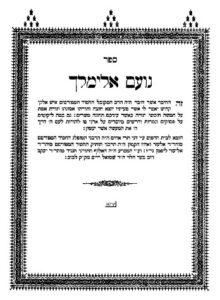 disgrace in what she puts her head on). And these are:
disgrace in what she puts her head on). And these are:
For an easy birth, there is no better segulah like being well preserved in the three commandments of a woman: hafrashat challah, proper observance of family purity, and lighting Shabbat candles. And the Gaon r. Aharon Brachia Modina z”l wrote in his book Ma’var Yabak[48] that every woman at the time of childbirth would repent of the three commandments mentioned above.
The reason for the difficulty of childbirth because of the curse that Eve was cursed by God for the sin of the “aetz hadat”: “Sadly you will give birth to sons.” And the three mitzvot of the woman come to correct this very iniquity, as the Sages said in Bereishit Rabbah [49]: “And for what reason shall we give her mitzvat ‘nida’? By shedding Adam’s blood, she was therefore given mitzvat nida with blood. And why was she given the mitzvah of ‘hafrashat challah’? By spoiling Adam, who was the end of the world’s challah, she was therefore given mitzvat challah. And why was she given Mitzvat Shabbat candle? she shut down Adam’s soul, therefore we will give her Shabbat candle to light his soul.
Therefore, a woman who does not observe these commandments properly is said in the Mishnah Shabat [50]: “For three avayrot a women can die in childbirth – for not being careful in nida, and in challah, and in lighting the candle.” And if so she iscareful, then the birth passes peacefully. And if these three commandments are observed with great elegance (such as those who secrete challah happily, and observe all the laws of nida very carefully, and light Shabbat candles with olive oil, and so on), then the sin of the “aetz hadat” is corrected with greater elegance, and in any case it can be assumed that not only will they pass the birth safely, but will also enjoy an easier birth, since they have already corrected the iniquity even without the necessity of the agony of birth.
Well:


“ארבעה אבות נזיקים: השור, והבור, והמבעה, וההבער. לא הרי השור כהרי המבעה, ולא הרי המבעה כהרי השור, ולא זה וזה שיש בהן רוח חיים כהרי האש שאין בו רוח חיים, ולא זה וזה שדרכן לילך ולהזיק כהרי הבור שאין דרכו לילך ולהזיק. הצד השוה שבהן: שדרכן להזיק ושמירתן עליך, וכשהזיק חב המזיק לשלם תשלומי נזק במיטב הארץ.” ע”כ.
And will repeat it again and again until birth. (Sefer Zichron Yaakov Yosef [76] in the name of Rabbi Zalman Sander Shapira, z”l).
And it should be emphasized that the whole issue of the segulahs of easy birth are to alleviate the sorrow of childbirth, but it is not appropriate to aim for the segulot to speed up the birth process as long as there is no danger to the mother or the child, since every baby has the proper time to go out into the world so that it will be at a happy hour and good luck. And as Mohran Hacohen of Izmir z”l (Baal Shvat Musar) explained in his book Midrash Talpiot [77], we took from there (and when there is a medical need to induce labor, there is certainly no restriction on speeding up labor). And look and see at Rabbeinu Ovadia Yosef z”l in his book טהרת הבית[78].
PLEASE NOTE*
Attention: You should not learn from one case to another, each case must be analyzed individually. Generally speaking, it's always best to have contact with a Rabbi in person, not just virtual contact. Note that where there is a local Rabbi("Mara Deatra"), one should ask him. The answers are under the responsibility of the rabbi who responded, and not under the responsibility of the website and/or the Head of the Institution.
Last Articles

The laws of Maaser Kesafim (the Monetary Tithe)
Summary of the Tithing laws on Financial Income (Ma’asrot, Tzedakah, etc.) How much should a person donate of their profits
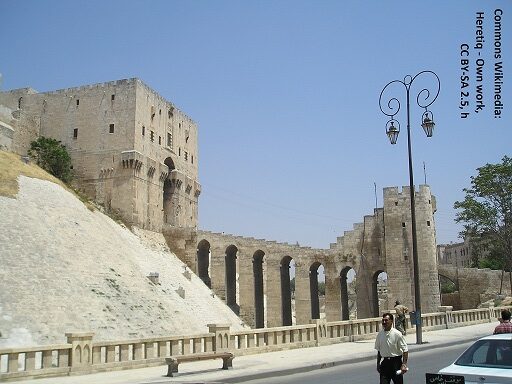
The laws and customs of Passover – according to the customs of Syrian Jewry (Aram Soba)
The laws and customs of Passover – according to the customs of Syrian Jewry (Aram Soba), and in particular
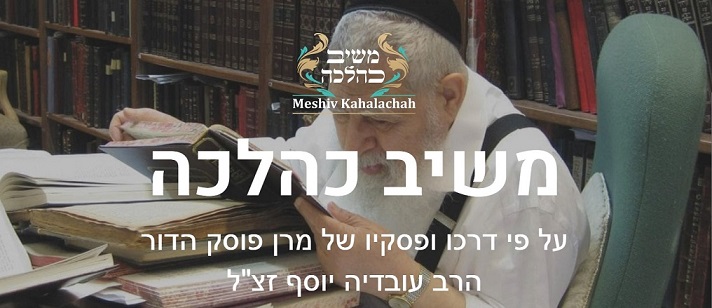
A video is presented to you regarding the segulah of the stone of the righteous, for those who wish to
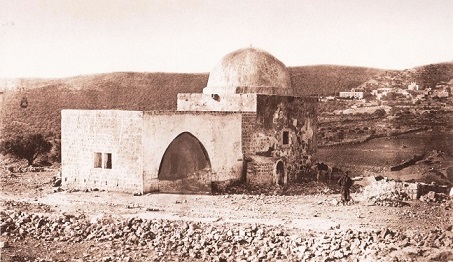
The Highness of Kever Rachel – in the day of the Hilula, Cheshvan 11th (From the book Shoshani Tzion –
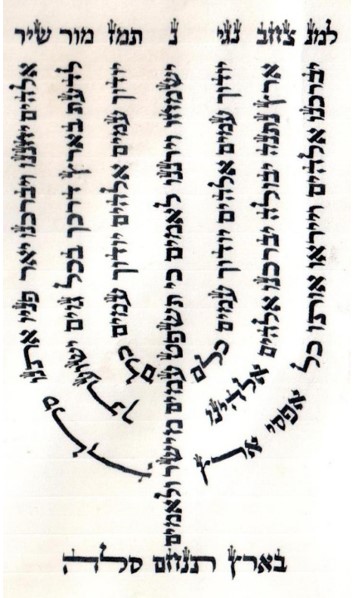
Kever Yosef Hatzadik in the city Nablus From the book Shoshanei Zion (still in manuscript) Yosef bones We are told
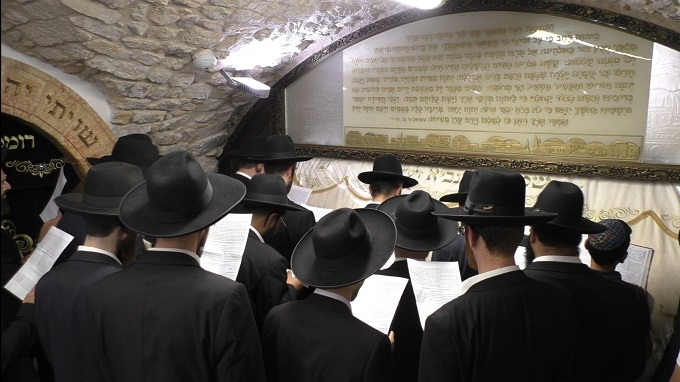
Kever Shmuel HaNavi – its Segulot and virtues
Taken from the book “Shoshanei Tzion” (still in manuscript) Kever Shmuel HaNavi is from the graves with a very ancient
You may interested
The Chief Rabbi of the Institute, together with dozens of Torah sages, will perform the Chidah’s segulah for you to raise your “Mazal” (luck, destiny), at the time of the opening of the Aron HaKodesh.
With Divine kindness, many were saved from their problems with this segulah!
Leave your details and we will return to you
